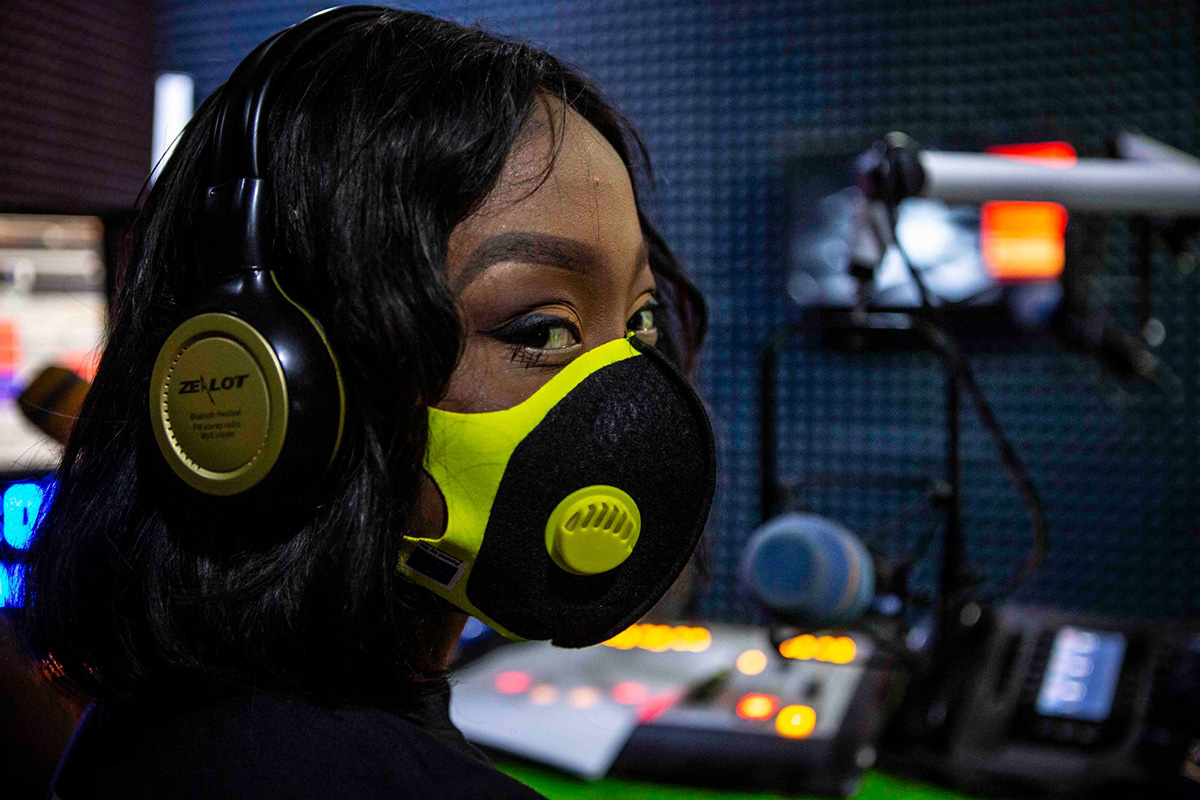
RAKIYA
“When you start to stir people's emotions, they open up.”
"COVID-19 can't affect black people. It can't come to Nigeria because it doesn't snow here. If you drink tea, you will be fine. Eat a lot of ginger, and the disease will go away," are just some of the rumors radio host Rakiya remembers hearing on-air.
In Nigeria, as elsewhere, miracle cures and conspiracy theories abound. COVID-19 has developed simultaneously into a pandemic and an infodemic.
Since 2020, Rakiya has been one of those swimming against the tide of misinformation. She hosts the European Union-funded radio talk show Working Together against Corona to combat fake information, help people navigate, collaborate and coexist peacefully amid the pandemic.
Faceless but not voiceless, listeners take comfort in this near anonymity to call Rakiya and share their concerns. "People were afraid to say that they were infected. It wasn't that they were not aware of the disease; they were just skeptical. They didn't know the dos and don'ts." And with each stage of the pandemic, new fears and rumors intertwine. "When the vaccines arrived, people said they were meant to kill us to take over Africa or that they contained chips to track people."
To dispel them, Rakiya invites experts to delve deep into listeners' concerns, answering their questions live. "The guests explained how vaccines are made and how to access them. They also warned against self-medication such as the use of chloroquine."
Some debates are more animated than others. "One of my favorite shows was on the topic of the supposed immunity of Africans to COVID." On air, listeners use the example of India’s COVID ‘inferno’ to prove their point, "if Nigeria is not in the same state of chaos, that's proof." Once again, the experts caution that scientific evidence must take precedence over assumptions. "Most people could be asymptomatic. Until proven otherwise, we cannot say that we are more immune than elsewhere."
Gradually, the misinformation gets curtailed. Rakiya confides that most listeners who now call her "know how to recognize symptoms, where to go if they occur, and how to protect themselves."
The true ingredient for this breakthrough? Trust. "Sometimes even the government has a hard time reaching out to people, but religious leaders can."
So Rakiya invites an imam and pastor to speak with one voice. "Having people from both congregations and doctors going in the same direction has helped us gain the trust of listeners." In a region gripped by conflict along religious and ethnic lines, the leaders urge their followers to work together to stem the pandemic and remind them "that protecting yourself is also protecting others."
The program touches both communities alike. "When you start to stir people's emotions, they open up. People began to share their own experiences with the disease." Religious leaders unlock doors for listeners. Calls pour in. "Often, when we talk about the victims, it seems so far away. But when you hear people talk live about the people they love and have lost, then everyone gets quiet and says, 'oh, this is real'."